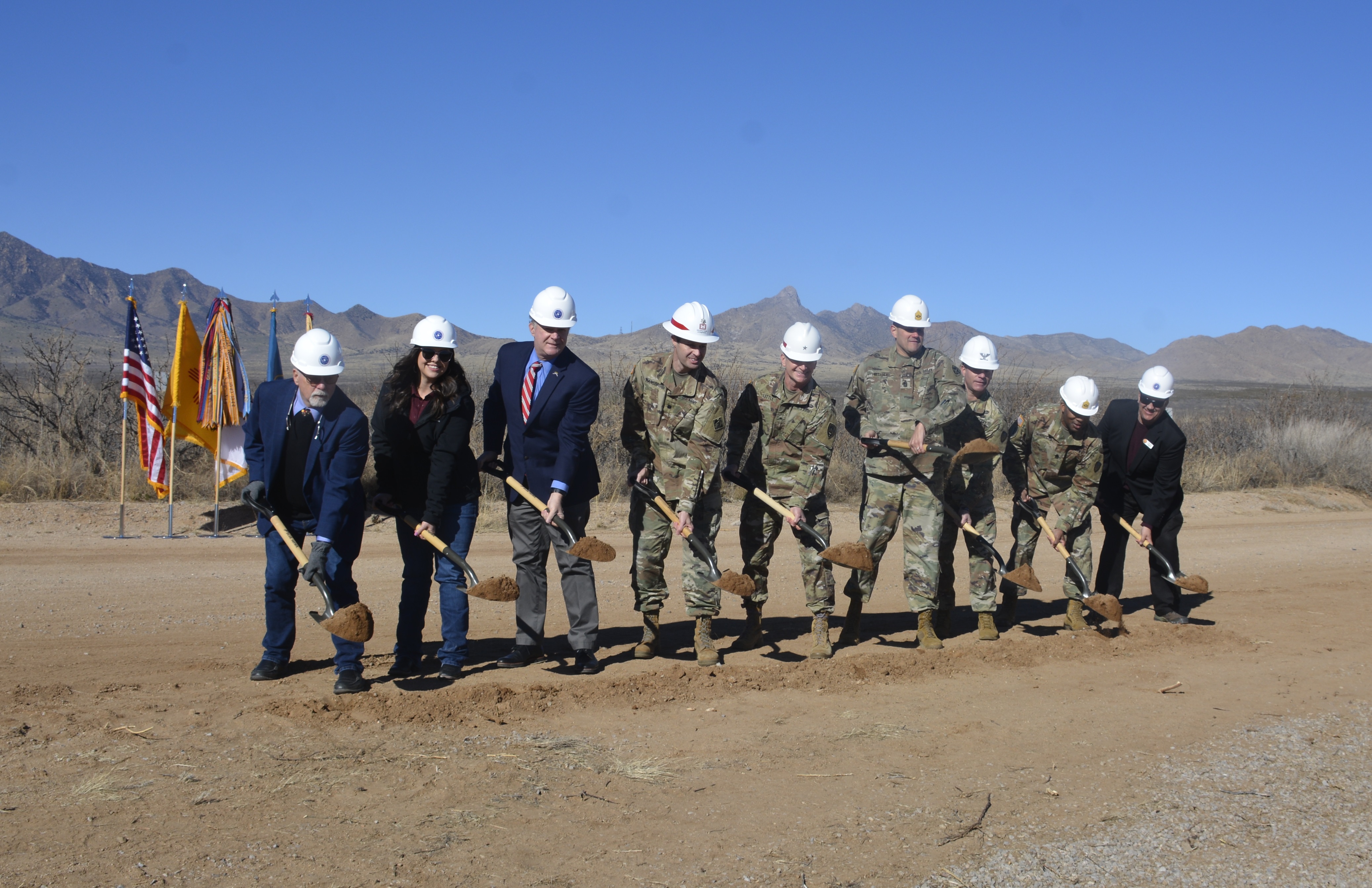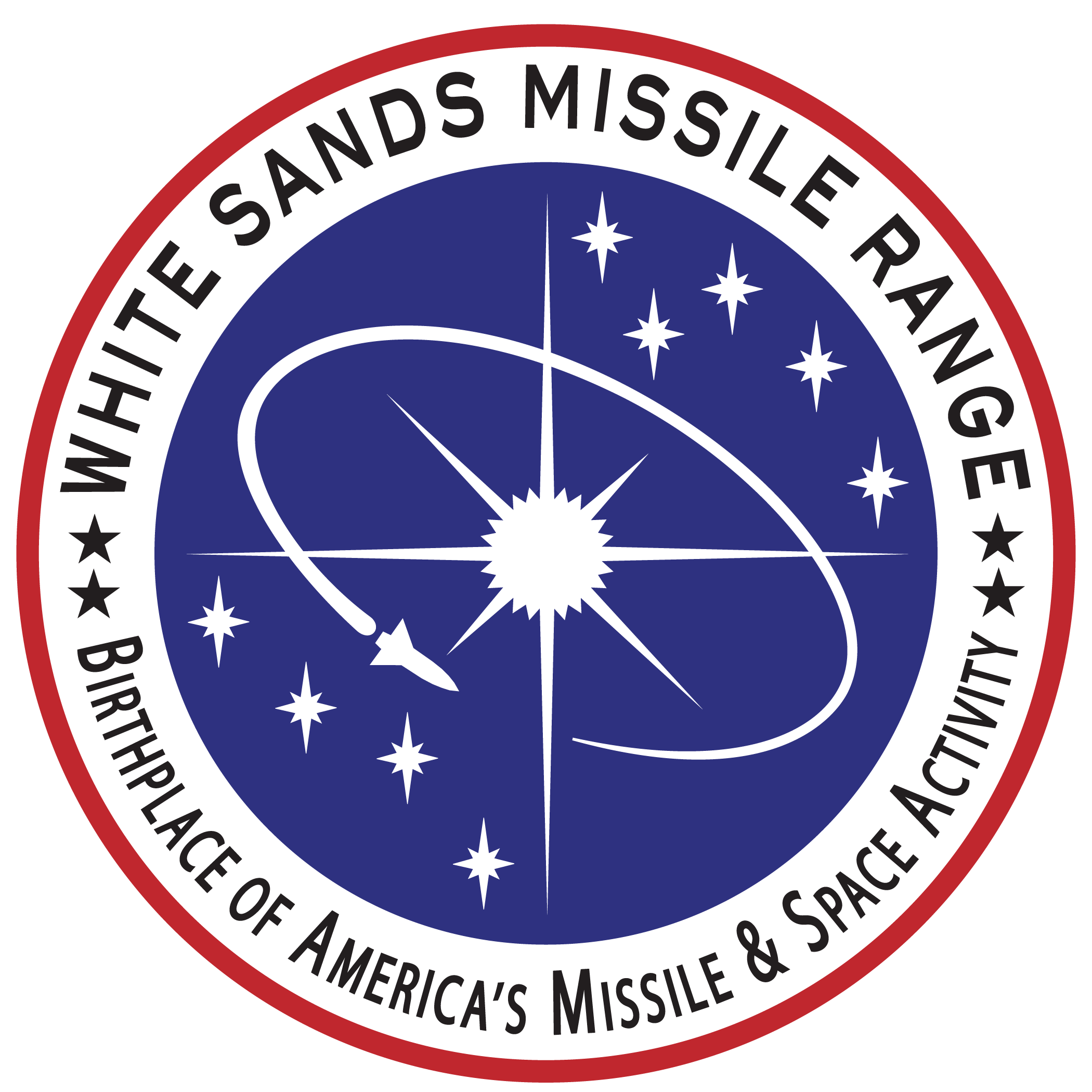
From left: Shannon Reynolds, District 3 Doña Ana County Commissioner, Ashley Beyer, Representative for U.S. Senator Martin Heinrich (D-NM), Dave McNeil, CEO/President Hannah Solar Government Services-Ameresco, LLC, Lt. Col. Jerre Hansbrough, Commander U.S. Army Corps of Engineers Albuquerque District, WSMR Commander Brig. Gen. Eric Little, WSMR Command Sgt. Maj. Jose Melendez, WSMR Garrison Commander Col. David Mitchell, WSMR Garrison Command Sgt. Maj. Devin Winnegan, and Craig Collins, WSMR Installation Energy Manager, break ground for a new 10.9-million-dollar water resiliency Microgrid Project Jan. 27 on the range.
WSMR breaks ground on Microgrid Project
White Sands Missile Range broke ground for a 10.9-million-dollar water resiliency Microgrid Project Jan. 27 on the range, the first of its kind for the U.S. Army.
A microgrid is a self-sufficient energy system that serves a discrete geographic footprint. WSMR’s Microgrid Project is part of the range’s enduring commitment to strengthen WSMR’s energy and water resiliency and to reduce the risk to the installation’s mission posed by utility disruptions.
WSMR Commander Brig. Gen. Eric Little welcomed guests to the event and thanked the Corps of Engineers for their support.
“This project is a win for White Sands Missile Range, a win for our community, a win for our Army and really a win for our Nation,” said Little. “It fits squarely into the priorities set by Secretary of the Army (Christine) Wormuth surrounding installation energy and water resiliency.”
Little said the microgrid will provide backup power to four ground water wells on the range.
“These wells and the microgrid will allow us to sustain critical missions by having the capability to withstand utility outages for a minimum of 14 days.”
The Microgrid will be equipped with a solar photovoltaic array, natural gas generator and a lithium-ion battery system to provide sufficient power to energize the local water wells during an extended power outage.
Craig Collins, WSMR Installation Energy Manager, said the project will enable WSMR to meet the U.S. Army’s requirement of 14-day energy and water independence for installations.
The Army has set an Army-wide goal of sustaining water and power on installations for up to two weeks, without having to depend on the civilian water and power supplies. The Army arrived at the 14-day requirement after having studied past power outage and water shortage patterns and matching them to critical mission requirements.
“I think this will put us way ahead of other installations and help pave the way forward for that type of technology,” said Collins.
The new microgrid ensures that the installation can continue critical missions without the disruption of potable water service to main post and demonstrates WSMR’s continued efforts to nest future construction projects with Army Directive 2020-23 and the IMCOM Energy and Water Initiatives.
“This Microgrid is not only essential to the modernization of White Sands Missile Range, but also for our mission and our community,” said Little. “As we continue upgrading infrastructure and establishing priorities across our range, I urge all leaders to identify what is next. It is our responsibility to continue prioritizing our efforts and always improving in order to remain the Army’s premier test and evaluation range.”
By Miriam Rodriguez
WSMR Public Affairs




